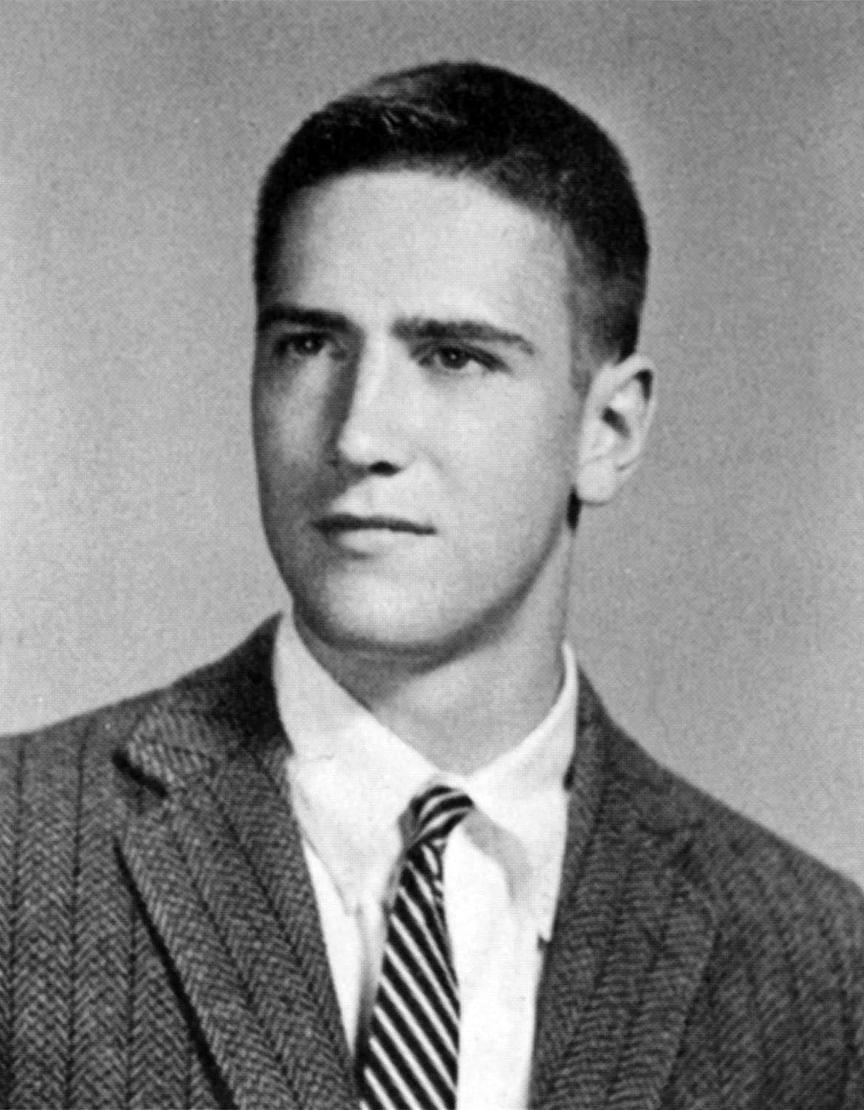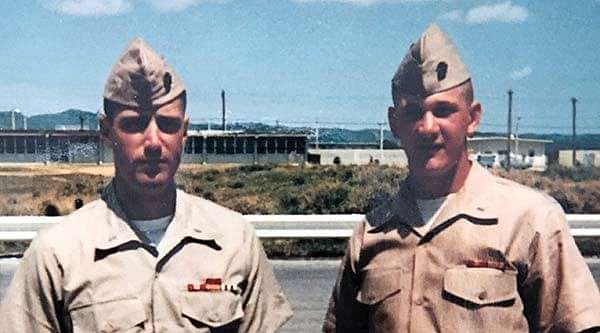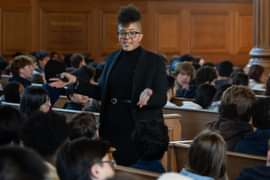
May 10, 2018
They don’t come any finer
Andover and the Military’s Blue Guidon profiles David Spencer Hackett ’61by Charlie Dean ’79
Quang Tri, the northernmost province in South Vietnam, was bordered to the north by the Demilitarized Zone (DMZ) and to the east by the South China Sea. Though the beaches, coastal rice elds, and wooded highlands with peaks surpassing 8,000 feet might depict tranquility, Quang Tri experienced intense conflict during the Vietnam War.
David Spencer “Moose” Hackett grew up in Ligonier, PA. At Andover, Hackett captained varsity soccer, competed on the varsity swimming and lacrosse teams, chaired the Athletic Advisory Board, and much more. Following Andover, Hackett attended Princeton, where he played soccer and lacrosse, and was a member of the Naval ROTC program.
Robert Mueller, Princeton ’66 and former director of the FBI, recalled, “In the spring of 1965, I was a junior. I played lacrosse with a senior by the name of David Hackett. He was also a superb soccer player; indeed, there is a soccer trophy named for him. He was a good lacrosse mid elder; perhaps not the best on the team, but he was a determined, natural leader. He enjoyed nothing more than going head rst into the mud to pick up a ground ball. David Hackett graduated that spring and was not far from our thoughts as we went on to our senior year.”
Hackett was commissioned a Marine Corps second lieutenant upon graduating from Princeton in 1965. One of his close friends at Princeton was Ord Elliott, Princeton ’66, who followed Hackett into the Marines one year later, as would Mueller and others who were inspired by Hackett’s example.
By the early months of 1967, First Lieutenant Hackett had advanced from rifle platoon commander in Hotel Company, 2nd Battalion, 3rd Marine Regiment, 3rd Marine Division, to Hotel Company’s second in command. The unit had recently arrived in Vietnam, and within Hotel Company was a young platoon commander, Elliott, fresh out of Princeton and Quantico, happy to be reunited with his friend.
 Lieutenants David Hackett (left) and Ord Elliott on Okinawa, a month before Hackett was killed on April 29,1967.
Lieutenants David Hackett (left) and Ord Elliott on Okinawa, a month before Hackett was killed on April 29,1967.
The battalion was on a Search and Destroy mission in late April 1967. Operating just south of the DMZ and seven kilometers northwest of their Khe Sanh rebase, Elliott recalled, “We were the first company to move north of [Hill] 861. The terrain was thick, steep, and rugged. We moved slowly and settled on a knoll for the night that was not quite midway between [Hill] 861 and [Hill] 881 North. My friend Dave, now the company executive officer, camped with my platoon for the night. We had had many discussions in our time together in Vietnam. Dave was fond of Indian stories and was reading a series of novels on the Old West. The protagonist in this series was a half-white, half-Indian named Big Lou, whom he described as strong, wily, tenacious, very courageous, and without fear. Big Lou always commanded his respect; Dave had always had mine.
“Dave would often recount one of Big Lou’s more harrowing feats or escapes. He had just finished the last novel in the series before we left the USS Princeton a week earlier. In the end, the invincible Big Lou is finally killed. There was a quiet nostalgia in Dave’s voice as he told me the tale. We drank a cup of coffee silently and peered into the darkening hills. He was a very close friend and companion and a good Marine. He never questioned the war much. He was a professional; like Big Lou, he accepted the rules of the game he was in.”
In the early morning hours of April 30, the predawn light was shattered by violence. The citation for Hackett’s Silver Star Medal, earned that morning, reads: “the company came under a sudden and vicious attack from fortified enemy emplacements less than one hundred meters away. Armed with .50 caliber machine guns, automatic ri es, and small arms with sniper scopes, the enemy inflicted heavy casualties. First Lieutenant Hackett unhesitatingly charged 30 meters through a hail of automatic re to direct an M-60 machine gun team against an enemy bunker. Once this mission was completed, he again exposed himself to the intense re to organize a stricken platoon and help evacuate the seriously wounded. Upon completion of this task, he once again rushed to the base of re to encourage and direct his men’s re. While pressing the assault and encouraging the Marines, First Lieutenant Hackett was mortally wounded, shot in the head by a sniper. By his outstanding courage, indomitable fighting spirit, and selfless efforts on behalf of others, First Lieutenant Hackett served to inspire all who observed him and upheld the highest traditions of the Marine Corps and the United States Naval Service. He gallantly gave his life for his country.”
Years later, Tom Beaton ’73—an Andover and Princeton soccer player—and his son visited the elderly Andover soccer coach Frank “Deke” DiClementi. Tom asked DiClementi to show him—within the photo album that Deke had assembled of his teams over his 40 years of coaching—the picture of the nest boy he had ever coached. Deke was quick to reply that every boy was special. He then flipped through the pages, stopped, and with a tear in his eye, turned to Tom’s son, and said, “Well, this boy, David, was an American hero. Class of 1961. Went to Princeton just like your dad. Died in Vietnam. They don’t come any finer than young David.”
Beaton had won the Hackett Cup while a Princeton soccer player many years before. Hackett’s legacy persists.
Categories: Alumni
Other Stories
Andover’s vision for creating a pipeline of rising leaders.




